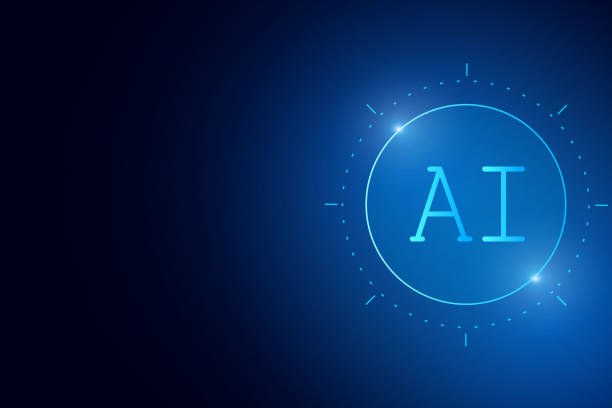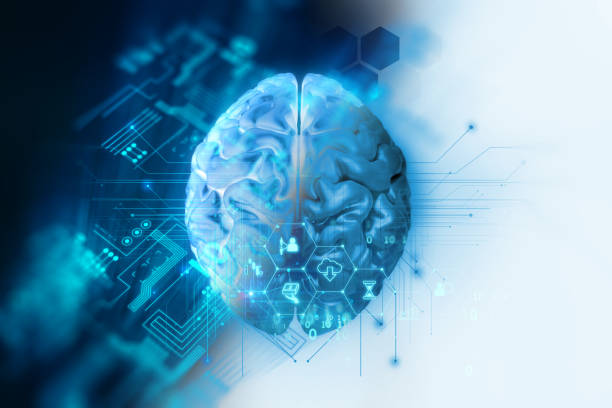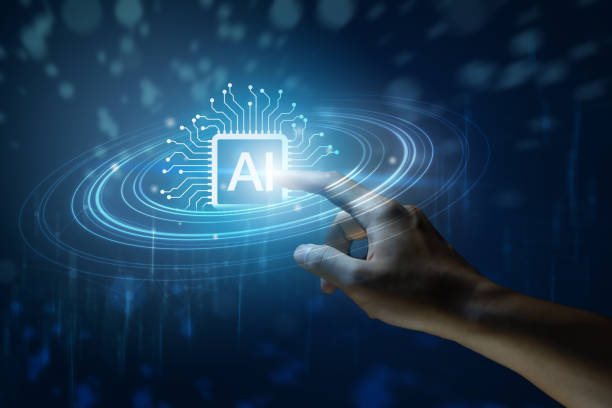1. What is Artificial Intelligence and Why is Our Career Future Tied to It?
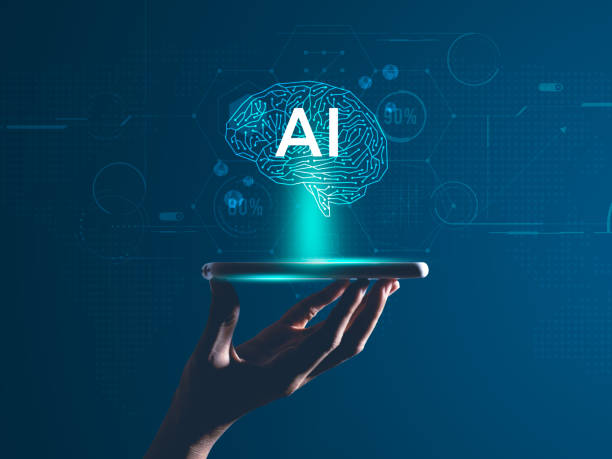
Artificial Intelligence (Artificial Intelligence – AI) is a branch of computer science that deals with the development of systems capable of performing tasks that typically require human intelligence.
These tasks include learning, problem-solving, natural language understanding, and even creativity.
Since the emergence of this technology, many industries have been transformed, and the outlook for AI careers has become one of the hottest topics in entrepreneurial and educational circles.
#Artificial_Intelligence is not just a tool, but a #transformative force that is changing the way we work and live.
This technology is no longer limited to science fiction films but has a strong presence in our daily lives, from search engines to voice assistants and recommendation systems.
A deeper understanding of this technology is essential not only for specialists but also for the general public, especially young people who are planning their career future.
This explanatory section provides a foundation for understanding more specialized and analytical discussions about the future of AI careers and helps us better recognize the broader dimensions of this transformation.
The impact of AI on jobs goes beyond mere automation; this technology is creating entirely new industries and opportunities that were previously unimaginable.
Worried about losing customers because you don’t have a professional e-commerce website?
With e-commerce website design by Rasavv, forget these worries!
✅ Significant increase in sales and visitor-to-customer conversion rate
✅ Professional and user-friendly design that builds customer trust
⚡ Get free consultation from Rasavv
2. The Impact of Artificial Intelligence on the Job Market: Changing and Replacing Jobs
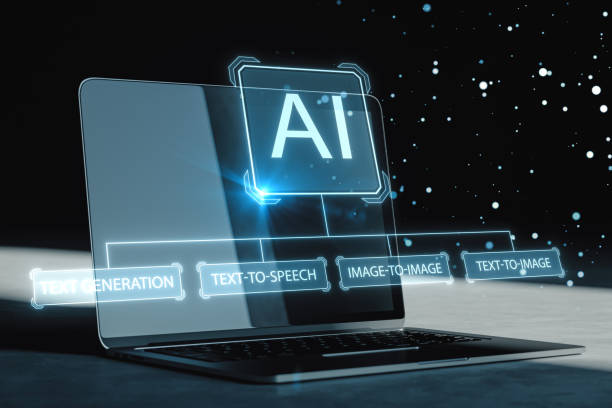
The entry of artificial intelligence into the job market has brought a wave of changes.
Some traditional jobs are undergoing transformation and even replacement, while new job opportunities are also emerging.
This transformation has raised concerns about widespread unemployment, but the reality is more complex.
AI automates most repetitive and data-driven tasks, such as data entry, basic customer support, or routine analyses.
This is significant for companies as it increases productivity, but it is challenging for employees whose jobs are susceptible to automation.
Jobs in sectors such as manufacturing, transportation, and even some administrative services are at the forefront of these changes.
For example, self-driving cars and industrial robots are transforming the landscape of transportation and factories.
However, it should be noted that these changes also create opportunities for growth and specialization in fields that require creativity, critical thinking, and human interaction.
The future of AI jobs does not mean that all jobs will disappear, but rather that many jobs will evolve.
This analytical section shows how to prepare for these changes and what skills are essential to remain competitive in the job market.
3. New AI Jobs: Emerging and In-Demand Opportunities
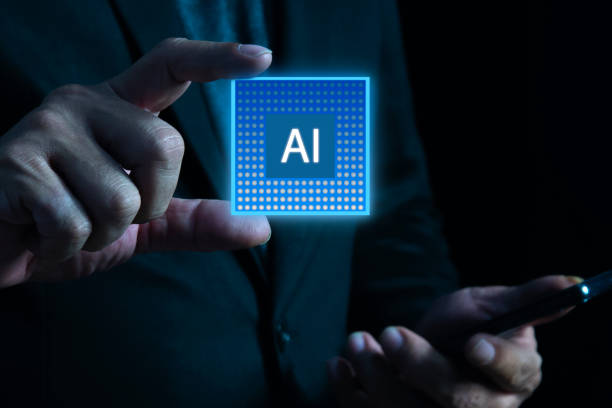
While artificial intelligence transforms some jobs, it also creates unprecedented career opportunities.
The future of AI careers means the emergence of roles that did not exist a few years ago.
These new jobs often require a combination of technical and soft skills and are increasingly in demand in the global job market.
Machine learning engineer, data scientist, AI developer, AI ethicist, and AI user experience designer are just a few examples of these jobs.
These specialists play a vital role in the development, implementation, monitoring, and improvement of AI systems.
For example, machine learning engineers design and implement AI models, while data scientists are responsible for collecting, cleaning, and analyzing the data used to train these models.
AI ethicists also help ensure fairness, transparency, and non-discrimination in algorithms, which is a critical aspect of responsible AI development.
These specialized opportunities highlight the increasing need for targeted training and the acquisition of new skills.
Below is a table of some of the high-demand jobs in this field:
| Job Title | Brief Description | Key Skills |
|---|---|---|
| Machine Learning Engineer | Designing, building, and implementing machine learning models | Python, TensorFlow, PyTorch, Statistics |
| Data Scientist | Analyzing data to extract insights and support decision-making | SQL, R/Python, Statistics, Business Intelligence |
| AI Developer | Building AI-based applications and systems | Programming, AI APIs, Software Engineering |
| Prompt Engineer | Optimizing instructions for Large Language Models (LLM) | Linguistics, Creativity, Understanding AI Models |
| AI Ethicist | Ensuring adherence to ethical principles in AI design and use | Philosophy, Law, Computer Science, Critical Thinking |
This table is just one example of the vast opportunities in the future of AI careers, demonstrating how AI is creating entirely new categories of jobs.
4. Essential Skills for Adapting to the Future of AI Careers
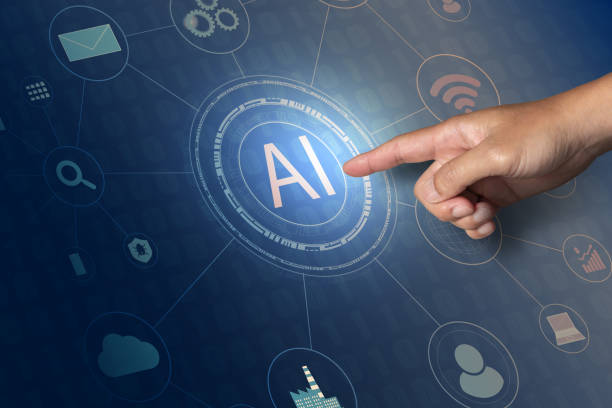
To succeed in the evolving landscape of AI careers, merely possessing technical knowledge is not enough.
A combination of technical and soft skills is essential for adaptation and progress.
From an educational perspective, data literacy is a fundamental skill; the ability to collect, analyze, and interpret data is vital for anyone who wants to work with AI systems.
This includes understanding statistics, data cleaning, and using analytical tools.
Programming skills, especially in languages like Python, R, and Java, are essential for those who want to play a direct role in AI development.
Furthermore, familiarity with the principles of machine learning and deep learning is also very valuable.
But more important than technical skills are soft skills.
Critical thinking, problem-solving ability, creativity and innovation, and the ability to work in teams and communicate effectively are among the skills that AI cannot easily replicate.
These skills are vital for analyzing complex issues, developing creative solutions, and collaborating with humans and machines to achieve common goals.
Planning for the future of AI careers requires a comprehensive approach that emphasizes both technical capabilities and human skills.
Is your e-commerce website ready to attract maximum customers and increase sales? Rasavv transforms your online business with modern and efficient e-commerce website designs.
✅ Increased speed and SEO improvement
✅ Excellent user experience on mobile and desktop⚡ Get a free e-commerce website design consultation from Rasavv!
5. The Role of Artificial Intelligence in Various Industries: From Health to Art
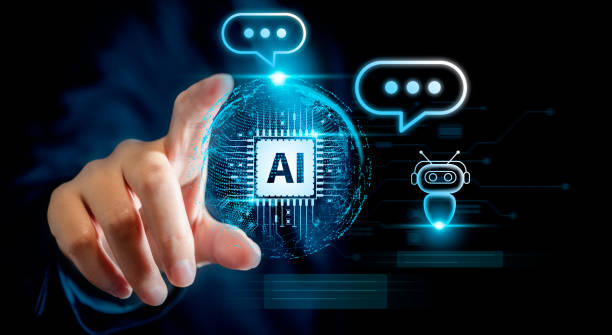
The impact of artificial intelligence is not limited to the technology sector; rather, it is rapidly penetrating all industries and shaping the future of AI careers in diverse fields.
In the healthcare industry, AI plays a role in early disease diagnosis, new drug discovery, and personalized treatments.
This creates opportunities for AI specialists with expertise in biotechnology, medicine, and medical ethics.
In the financial sector, AI is used for fraud detection, risk management, and providing personalized financial advice.
This in-depth analysis highlights the need for specialists with knowledge in finance and AI algorithms.
Even in creative industries such as art and music, AI is used as a tool for creating new content, generating music, and graphic design.
This provides new job opportunities for artists and designers who can collaborate with AI tools.
This analysis shows how AI is redefining industry boundaries and creating demand for hybrid skills.
This is a specialized opportunity for those who can combine their AI knowledge with a deep understanding of a specific industry, opening new horizons in the future of AI careers.
6. Upcoming Challenges in the Future of AI Careers: Unemployment and Ethics
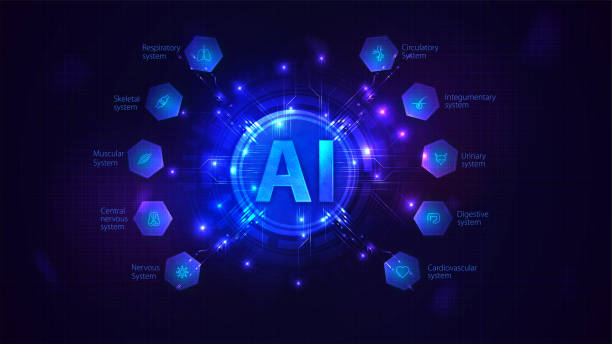
Like any technological revolution, the future of AI careers also brings significant challenges that require careful consideration and planning.
One of the biggest concerns is the rise in unemployment due to job automation.
With the advancement of AI, many routine tasks previously performed by humans can now be automated.
This thought-provoking content raises the question of how to cope with this job displacement. Should governments and organizations implement extensive retraining programs? Or should we consider new models of wealth distribution, such as universal basic income? Another challenge is the ethical issues related to AI.
Including algorithmic bias, privacy violations, and accountability for automated decisions.
These issues can directly impact the career future of AI specialists as well as the general public.
For example, AI developers must consider not only the technical aspects but also the social and ethical implications of their work.
This analytical section shows that successful transition to this future requires collaboration among governments, industry, academia, and civil society to create the necessary policies and standards to ensure that the future of AI careers benefits everyone, not just a select group.
7. Education and Reskilling for the Future of Artificial Intelligence: Platforms and Methods
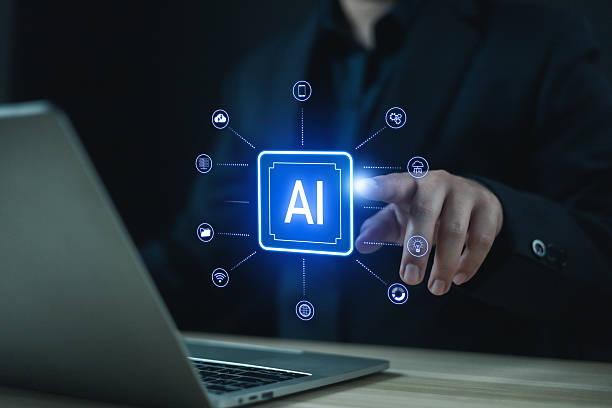
Given the rapid pace of changes in the future of AI careers, continuous education and reskilling are essential for individuals at all levels.
This educational section provides guidance on available platforms and methods for acquiring new skills.
Online platforms such as Coursera, edX, Udacity, and Khan Academy offer many specialized courses in artificial intelligence, machine learning, and data science.
These courses are often designed by reputable universities or leading companies in the industry and provide the flexibility needed for learning anytime, anywhere.
Additionally, specialized programming and AI bootcamps provide an intensive and practical experience for quick entry into the job market.
Books, scientific articles, and online communities (such as GitHub and Kaggle) are also valuable resources for learning and knowledge exchange.
Participating in workshops, seminars, and conferences related to artificial intelligence can also help keep knowledge up-to-date and facilitate networking.
The future of AI careers belongs to those who are always learning and upgrading their skills.
Understanding that learning is a lifelong process is key to success in this era of transformation.
The table below lists some key educational resources:
| Resource Type | Examples | Features |
|---|---|---|
| Online Learning Platforms | Coursera, edX, Udacity, DataCamp | Diverse courses, certifications, high flexibility |
| Intensive Bootcamps | Le Wagon, General Assembly | Practical and intensive training, focus on employment |
| Specialized Books and Articles | “Deep Learning” by Goodfellow et al., ArXiv | In-depth knowledge, theoretical and advanced topics |
| Online/Offline Communities and Events | Kaggle, GitHub, Meetups, Conferences | Project-based learning, networking, knowledge updates |
| Vocational Training Centers | Technical and Vocational Training Organization, private institutes | Practical courses with valid domestic certifications |
These resources help individuals prepare themselves for the countless opportunities in the future of AI careers and always stay ahead.
8. The Future of AI Careers and Entrepreneurship: Startup Opportunities
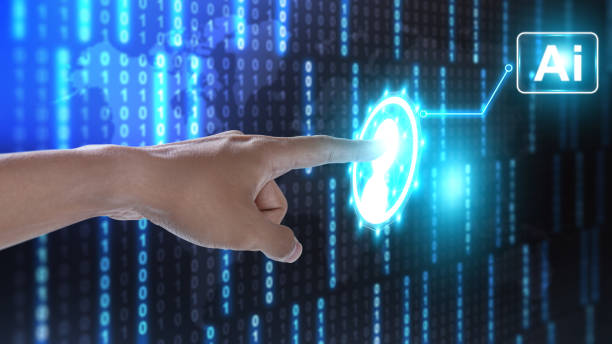
The future of AI careers not only creates new jobs in large companies but also provides fertile and exciting ground for entrepreneurship and launching startups.
AI enables entrepreneurs to solve complex problems with innovative solutions and create new markets.
These guiding and engaging opportunities can inspire a new generation of innovators.
From developing AI tools to improve business productivity to creating intelligent personal assistants, robotics, and customized solutions for specific industries, the entrepreneurial potential in this field is boundless.
AI startups can create value in areas such as big data analysis, natural language processing, computer vision, and advanced robotics.
These entrepreneurs can play a significant role in shaping the future of business and employment by identifying market needs and developing innovative technologies.
Success on this path requires creative ideas, technical expertise, and the ability to attract capital.
For many young people, these opportunities can offer an attractive career path where they not only create jobs but also directly contribute to technological and societal advancement.
This dimension of the future of AI careers demonstrates its dynamism and high capacity for wealth creation and new opportunities.
Did you know that 94% of users’ first impressions of a business are related to its website design? With professional corporate website design by **Rasavv**, turn this initial impression into an opportunity for growth.
✅ Attracting more customers and increasing sales
✅ Building credibility and trust in the audience’s perception⚡ Get a free website design consultation!
9. Policymaking and the Future of AI Careers: The Role of Governments and Organizations
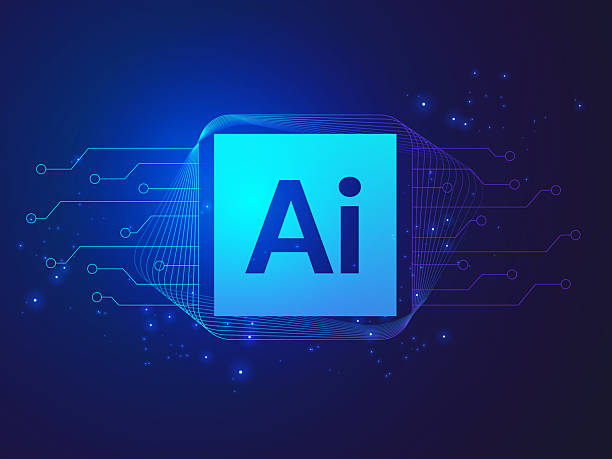
To manage the transformations resulting from the future of AI careers, the role of governments, international organizations, and educational institutions is crucial.
Smart policymaking can help mitigate challenges and maximize the benefits of this technology.
From an analytical perspective, governments should invest in three key areas: First, workforce education and retraining.
This includes developing new curricula in schools and universities, and providing retraining courses for current workers.
Second, creating the necessary infrastructure for AI development, such as high-speed internet and data access.
And third, establishing ethical and legal frameworks for the responsible use of AI, especially concerning data privacy, job security, and preventing discrimination.
International organizations can also help coordinate these efforts by facilitating the exchange of knowledge and best practices globally.
For example, the European Union and the United Nations are developing frameworks for AI ethics.
Collaboration between public and private sectors is also essential for directing research, investing in startups, and creating innovative ecosystems.
Without a comprehensive and coordinated approach at the policy level, we cannot fully leverage the potentials of the future of AI careers and manage its challenges.
10. Conclusion: Artificial Intelligence and the Unlimited Horizons of the Future
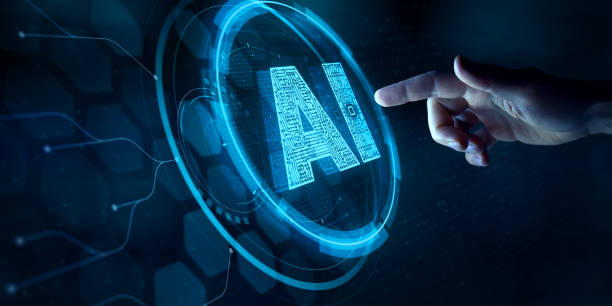
Ultimately, the future of AI careers is a complex and multifaceted phenomenon that presents both unique challenges and unparalleled opportunities for humanity.
As discussed in this explanatory and news article, AI not only transforms many existing jobs but also creates entirely new categories of employment.
These changes require preparedness and flexibility from individuals, organizations, and governments.
The key to success in this transitional period is continuous learning, the development of hybrid skills (technical and soft), and creative thinking to solve problems that AI is not yet capable of performing.
The future of AI careers is not a future to be feared, but one that must be planned for and actively participated in shaping.
By investing in education, creating appropriate infrastructure, and formulating ethical and responsible policies, we can ensure that this technological revolution leads to an improved quality of life and the creation of sustainable job opportunities for all.
Artificial intelligence is a powerful tool, and how we use it will determine the unlimited horizons of our career future.
With a positive outlook and a smart approach, we can best leverage this massive transformation and build a world full of new opportunities for future generations.
Frequently Asked Questions
| Question | Answer |
|---|---|
| What impact will AI have on the future job market? | AI will automate repetitive jobs, but at the same time, it will create new and more complex jobs in areas such as the development, maintenance, and training of AI systems. |
| Which jobs are most at risk of being replaced by AI? | Jobs involving repetitive, rule-based tasks with low need for creativity or emotional intelligence, such as some manufacturing jobs, data entry, and simple customer service, are most at risk. |
| What skills are essential for success in an AI-driven career future? | Skills such as critical thinking, complex problem-solving, creativity, emotional intelligence, data literacy, the ability to work with AI, and lifelong learning are highly important. |
| Will AI lead to widespread unemployment? | Some jobs will disappear, but history has shown that new technologies, instead of widespread unemployment, reshape the job market and create new jobs. The need for adaptation and retraining is crucial. |
| What new job opportunities are emerging with the rise of AI? | Jobs such as Machine Learning Engineer, Data Scientist, AI Ethicist, Human-AI Interaction Designer, and Digital Transformation Consultant are among the new opportunities. |
| What is the role of education in preparing for an AI-driven career future? | Education must focus on developing soft skills, computational thinking, digital literacy, and the ability for continuous learning to prepare individuals for future changes. |
| How can I prepare myself for the job market changes caused by AI? | You can prepare yourself by learning new skills related to AI and data, strengthening soft skills, developing critical and creative thinking, and embracing lifelong learning. |
| Will AI ethics become an important career field? | Yes, given increasing concerns about AI biases, privacy, and automated decision-making, the role of AI ethics specialists will become crucial for ensuring its responsible development. |
| What is the importance of human-AI collaboration in the future of work? | Human-AI collaboration, rather than competition, will shape the future of the job market. AI can be a tool to increase productivity and allow humans to focus on more complex and creative tasks. |
| Which industries will be most affected by AI? | Nearly all industries will be affected, but sectors such as healthcare, finance, transportation, manufacturing, education, and customer service are pioneers in adopting and transforming through AI. |
And other advertising services from RasaWeb Advertising Agency:
Smart UI/UX: A new service to increase online growth through marketing automation.
Smart Data Analysis: A specialized service for growing customer acquisition based on attractive UI design.
Smart Marketplace: A professional solution for improving SEO ranking with a focus on user experience customization.
Smart Link Building: A professional solution for analyzing customer behavior with a focus on Google Ads management.
Smart Content Strategy: Designed for businesses seeking to manage campaigns through the use of real data.
And over hundreds of other services in the field of internet advertising, advertising consultation, and organizational solutions.
Internet Advertising | Advertising Strategy | Advertorials
Resources
The Future of AI Jobs in Iran
Challenges of Artificial Intelligence in the Job Market
New Horizons of Artificial Intelligence and Digital Economy
Impact of Artificial Intelligence on Various Industries and Future Jobs
❓ Are you ready for your business to grow in the digital world? With the comprehensive services of RasaWeb Afarin Digital Marketing Agency, including e-commerce website design and SEO optimization, have a powerful presence in the online market.
📍 Tehran, Mirdamad Street, next to Bank Markazi, Kazeroun Jonoubi Alley, Ramin Alley, No. 6

